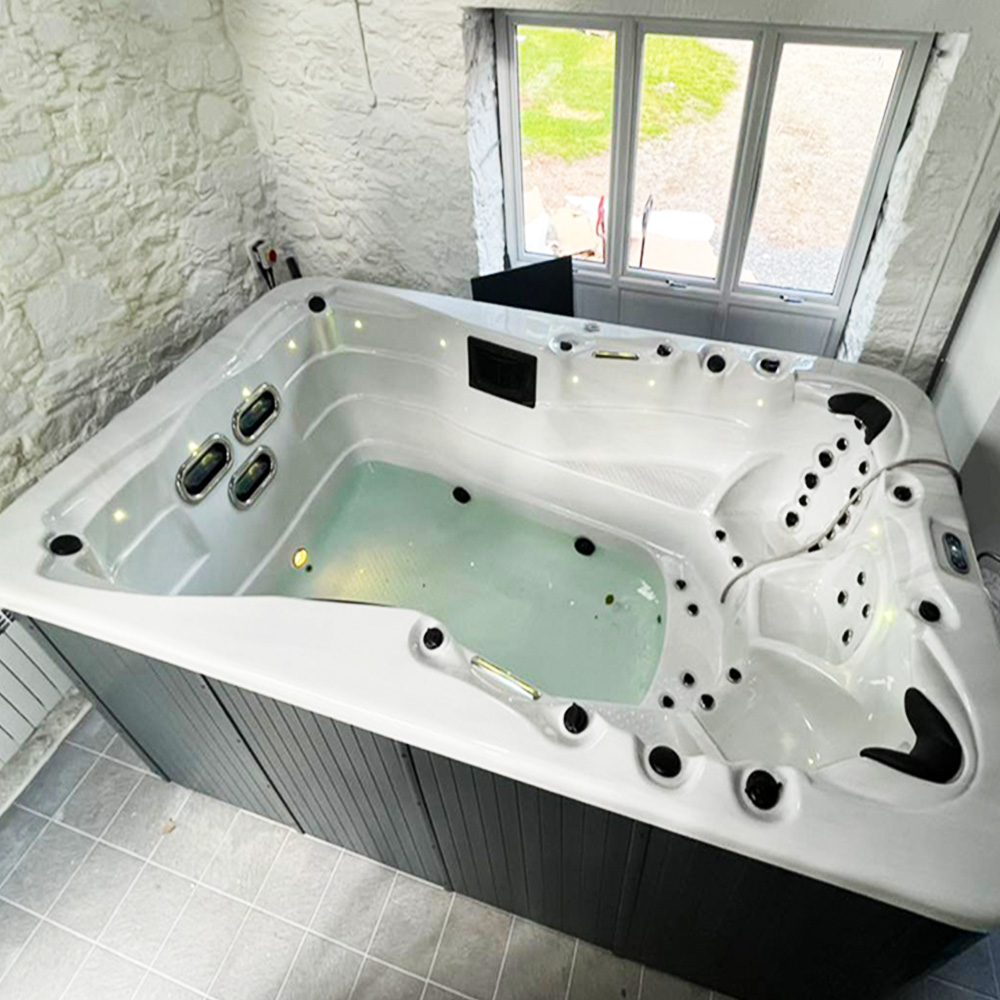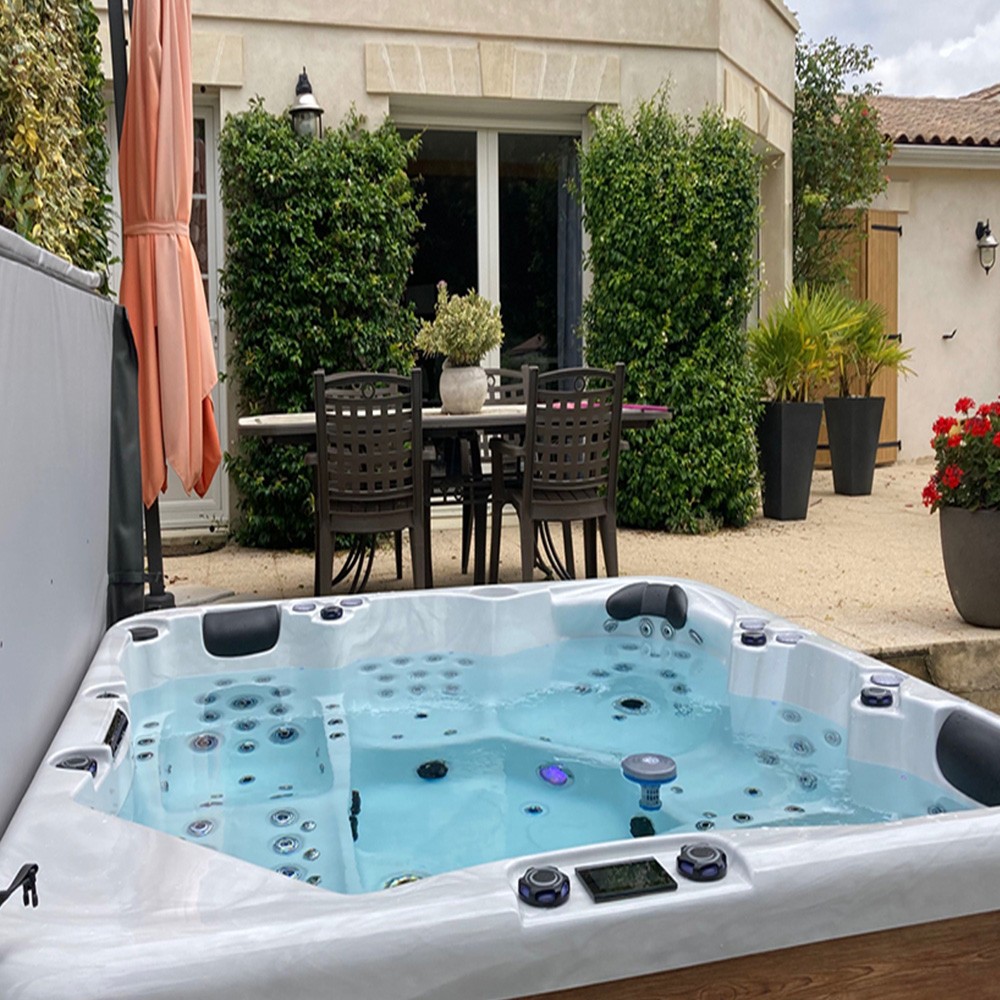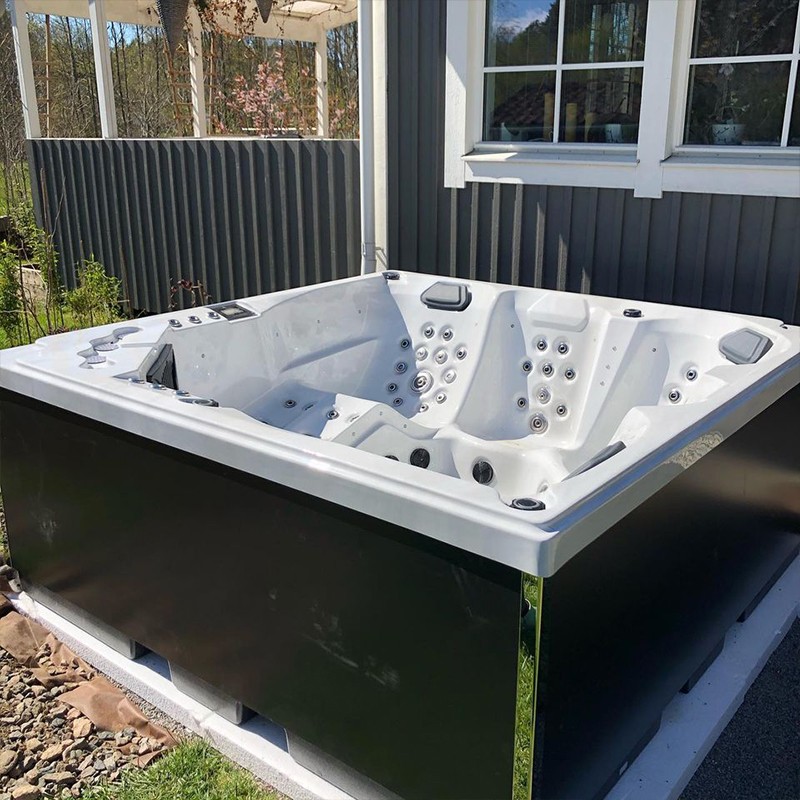
Why shouldn't people over 60 use hot tubs?
2024-11-20 15:30In recent years, hot tubs have become a "healthy companion" in many people's lives because of their relaxing and stress-relieving effects. But it is worth noting that such facilities may not be suitable for users of different ages. Especially for the elderly over 60, using hot tubs poses certain health risks and may even have serious consequences. This article will explore from many aspects why the elderly over 60 should carefully consider using hot bathtubs.

1. Will hot tubs cause cardiovascular problems to worsen?
1.1 Effects of high temperature on blood vessels of the elderly
The use of hot water tubs usually requires the water temperature to be between 37-40 degrees Celsius, and high temperatures will have a direct effect on blood vessels, causing blood vessels to dilate, thereby causing lower blood pressure. For the elderly group with decreased vascular elasticity and a high incidence of cardiovascular diseases, this vascular dilation may cause blood circulation problems, ranging from dizziness to angina pectoris, arrhythmia, and even myocardial infarction. Therefore, the high temperature characteristics of hot tubs cannot be ignored for patients with cardiovascular problems.
1.2 High temperature will accelerate the heart rate and affect the heart load
In a hot bathtub, heat stimulation will accelerate the heart rate and increase the heart load. For the elderly, the heart health is not as strong as that of young people, and the rapidly accelerated heart rate may cause the heart to be unable to bear it. Especially for those elderly people with cardiovascular diseases such as hypertension and heart disease, their hearts are prone to accidents due to excessive load. Therefore, cardiovascular health risks are an important threat to the use of hot water tubs for the elderly.

2. Will hot tubs increase the burden on the respiratory system?
2.1 High temperature environment irritates the respiratory tract
High temperature environment will cause humidity to rise, and this high temperature and high humidity environment will increase the burden on the respiratory system. Especially for the elderly with chronic obstructive pulmonary disease (COPD) or asthma, the steam in the hot tub may irritate the respiratory mucosa, causing difficulty breathing or shortness of breath. Staying in a hot tub for too long may also cause difficulty breathing and even the risk of suffocation.
2.2 Special risks for patients with respiratory diseases
Respiratory diseases are particularly common among the elderly. Patients with these diseases have a large demand for oxygen, but in a high temperature and humidity environment, oxygen intake will be limited. In addition, high temperatures may increase the concentration of carbon dioxide in the blood, aggravating the symptoms of respiratory diseases. Therefore, hot water tubs are not suitable for elderly people with hidden dangers to their respiratory health.
3. Will the high temperature in a hot tub cause electrolyte imbalance?
3.1 Increased sweating can cause electrolyte imbalance in the body
The high temperature environment of a hot bathtub will cause the human body to sweat a lot, and sweating a lot will cause the loss of electrolytes such as sodium and potassium. This is especially dangerous for the elderly. The imbalance of electrolyte balance in the body will bring a variety of health risks, including muscle cramps, fatigue, confusion, and even acute diseases caused by electrolyte imbalance in severe cases.
3.2 The harm of symptoms of electrolyte imbalance to the health of the elderly
Due to the weakened metabolic function of the elderly, the recovery speed of electrolyte loss in the body is slow. Electrolyte imbalance can make people feel weak, dizzy, and may even cause fainting. For the elderly, the electrolyte imbalance caused by hot tubs often takes a longer time to recover, which undoubtedly increases health risks.

4. Will the high temperature of a hot tub affect the blood sugar level of the elderly?
4.1 Potential harm of high temperature to diabetic patients
The prevalence of diabetes is high among the elderly. The high temperature environment of hot tubs may affect insulin sensitivity and cause large changes in blood sugar levels. High temperature may cause more drastic fluctuations in blood sugar levels in diabetic patients, thereby increasing the risk of hypoglycemia or hyperglycemia. The drastic fluctuations in blood sugar levels pose a threat to the health of diabetic patients, especially in hot bathtubs that lack monitoring equipment, where it is difficult to quickly respond to blood sugar problems.
4.2 Risk of hypoglycemia
In the high temperature environment of a hot water tub, a rapid drop in blood sugar may lead to hypoglycemia. Symptoms of hypoglycemia include sweating, trembling, and confusion. For elderly diabetic patients with weak constitutions, hypoglycemia may cause fainting or even death in a short period of time. Therefore, the potential risks posed by hot tubs to elderly people with diabetes need to be taken seriously.
5. Does a hot tub increase the risk of stroke?
5.1 The relationship between high temperature and rising body temperature
High temperature can increase the body temperature of the human body, especially when soaking in hot water for a long time, the body's natural heat dissipation ability will be limited. In this case, the body temperature of the elderly may reach a dangerous level, causing the central nervous system to be affected and increasing the risk of stroke. Especially for patients with hypertension, their blood vessels are more fragile. High temperature can cause fluctuations in blood vessel pressure, which in turn increases the possibility of stroke.
5.2 Decreased ability of the elderly to regulate body temperature
The elderly are not as good as young people in regulating temperature changes. It is difficult for their body temperature to return to normal. Continuous high body temperature may lead to physical exhaustion and increase the risk of stroke. Therefore, hot tubs obviously pose a greater risk to the elderly who are prone to stroke.

6. Will hot tubs increase the risk of falls and drowning?
6.1 Risk of slips and falls
The slippery environment itself is prone to falls, and the slippery surface in the hot water tub increases the risk of falls for the elderly. Falls may cause serious injuries such as fractures and concussions. Because the bones of the elderly are fragile, the recovery time after a fall is long, which seriously affects the quality of life. Therefore, the threat of hot tub environment to the risk of falls for the elderly cannot be ignored.
6.2 Drowning risk
Long-term soaking in a hot tub may cause fatigue in the elderly, and even dizziness, confusion, and in extreme cases, drowning. In particular, the elderly have slow reactions and poor body coordination, and it is difficult for them to save themselves when they lose balance. Therefore, the risk of drowning in a hot bathtub poses a fatal threat to the elderly.
In summary, the high temperature environment of a hot bathtub poses a multi-faceted threat to the health of people over 60 years old, including cardiovascular problems, respiratory system burden, electrolyte imbalance, blood sugar fluctuations, stroke risk, falls and drowning risks. For the elderly with the above health risks, hot tubs should be used with caution. If there is a real need, careful arrangements should be made in terms of water temperature, time and care.
